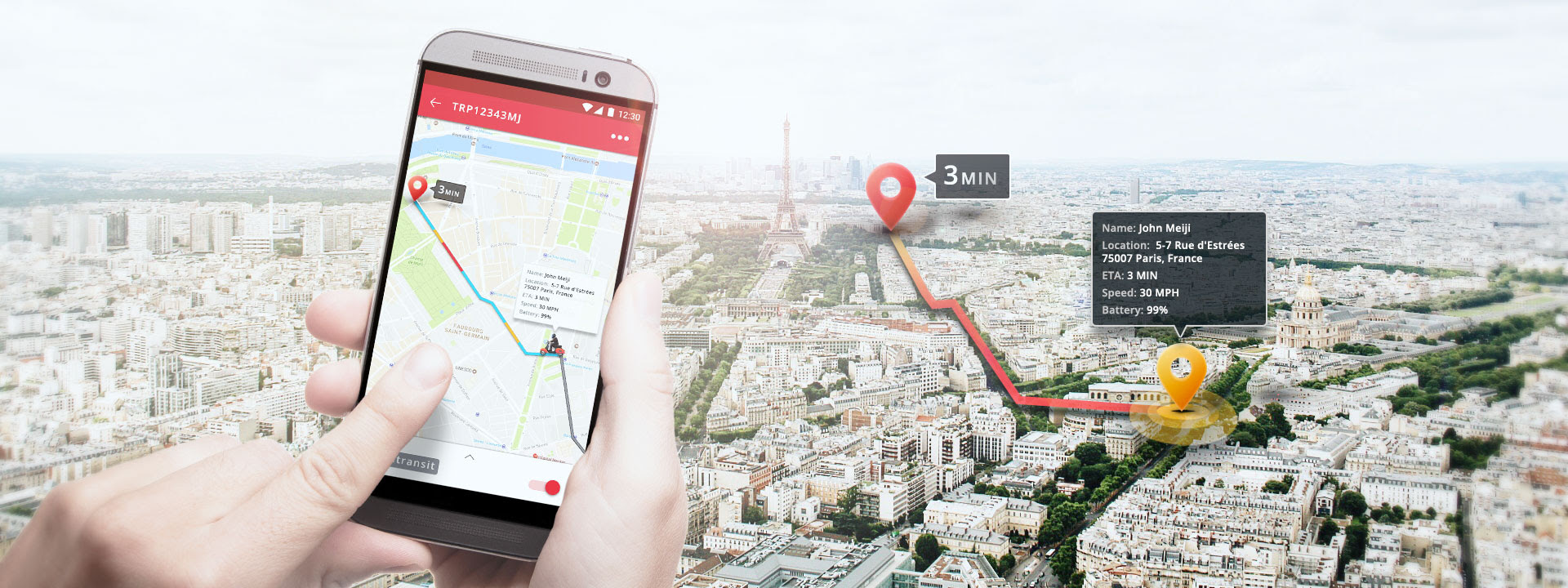7 Strategies That Boosted my Company’s Growth
– By Dhruvil Sanghvi (Previously published on TechInAsia)
I still remember early 2014 when I started LogiNext with a front office in California and a development office in India.
That was the time of ecommerce companies, cab aggregators, and the on-demand economy. It was also when operationally intensive businesses were selling (or at least getting funded) like hotcakes. At that time, we were able to gauge the need for managing the last mile logistics team and the field workforce that companies were struggling with.
Today, we’re third in the global logistics-tech segment, with a sizable client base and 200-member team across 10 countries. We’re also part of Alibaba Group’s portfolio of companies.
It has been an intense journey- we’re building a great team, networking with industry heads, and being mentored by veteran entrepreneurs. We’re also mentoring many emerging entrepreneurs and intrapreneurs.
Here are my two cents on building a fast-scaling organization:
1. Sense of Urgency
Our mantra is to work with a sense of urgency. Every member in our team is driven by a strong willpower to succeed and displays tireless work ethics. To scale faster, we accomplish every task faster than normal. Each moment is urgent. It pisses off some people and it’s not always comfortable to work in such an environment but, well, if comfort is what we needed, we wouldn’t have reached where we are today.
Being proactive and ever vigilant helps us stay ahead of competition. Here’s how we ensure that urgency is always instilled in the team:
- We clarify the consequences of inaction at the onset. These come in the form of competitors or upcoming events and come from the market or technology.
- A deadline is attached to every task so that the team is well-aware of the speed with which each task should be accomplished.
- Every team member is confident of each other’s capabilities hence, we constantly offer help to each other when needed.
Creating a sense of urgency means pushing everyone to do their best, but don’t turn these nudges into nagging. Instead, communicate honestly and openly, offer recommendations and resources, and always help.
To sum it up, here are Bob Procter’s words:
“Everyone should have a sense of urgency—it is getting a lot done in a short span of time in a calm, confident manner.”
2. Automation to Improve Efficiency and Productivity
The teams at hyper-growth companies must wear multiple hats—right from managing finances to the sales and marketing, to building entire product modules single-handedly, and everything in between. The responsibilities are endless.
While the time of every team member is best spent on serving customers and building new technologies, a lot of time is spent on small but important tasks that are necessary to run the business smoothly. We’ve automated several of them and this allows our team to focus on improving efficiency and productivity.
For example, we learned that successful marketing does not mean setting it up on auto-pilot mode. Automation is about creating a bigger impact, not about doing less. A marketing automation software is not a silver bullet that solves all your problems. It rather “streamlines, automates, and measures marketing tasks and workflows to increase operational efficiency and grow revenues.” We have literally followed this article to automate our emails, customer engagement, NPS measurements, and end-to-end marketing tasks.
3. The Power of a Lean Team
We believe in the power of small teams. We’ve adopted the approach to employ a lean team where there is no more than five members. But as the team size increases, the efforts put in by each person decreases (It’s the Ringelmann effect).
On the other hand, people in smaller teams increase their efforts because they feel more responsible for the outcome of the work they have put in. Each member wears multiple hats and tends to be more entrepreneurial. The sense of ownership helps tap into their natural reserve of intrinsic motivation.
To many, it feels throwing more people to solve a problem is the best way to go. It is very easy to get carried away with that mindset because everyone wants to brag about large teams and high employee numbers. Through experience we’ve found that additional talent doesn’t equate to optimal talent. Instead, prioritize a culture that encourages every member to be a crucial part of a smaller team.
4. Getting Out of the Comfort Zone
We eat the same breakfast daily and order the same food at our favorite restaurant. Getting stuck in a routine is easy, because we’re all bound by our habits.
Every member of our team regularly seeks out new experiences which make them more creative and emotionally stronger than those stuck in a routine. This is because breaking your own mold makes you more resilient, stronger, and confident to take your professional and personal life to higher levels.
Every day each member is pushed out of their comfort zone. This helps us see and do new things which ultimately leads to increased productivity.
Here’s how we’ve hacked the challenge of getting out of our comfort zone daily:
- The challenges being solved by team members leverage their unique and natural talents.
- Although it takes time to get used to it, everyone in our team has started hating their comfort zone and are constantly seeking newer challenges.
- The best thing about startups and their people is that everyone is excited to stretch their abilities and take up new challenges. (And it’s OK to fail.)
- Getting out of the safe zone shows incremental progress. There is never a stagnant moment where people want to get rid of their jobs.
- There are moments where everyone is very energized and aligned with work that it gives them high moments. They still face lows which can be extremely difficult to manage but these only make employees even tougher and stronger.
Each time that we push our limits, we learn something new about ourselves, and this happens almost every day in our office. As they say, what doesn’t kill you makes you stronger!
5. Productivity
To inspire everyone to work hard and give their best shot, we constantly place them in positions where they need to go beyond their limits. Setting realistic but hard-to-achieve deadlines makes us work harder and be more productive, especially because time is always finite and nobody wants to spend their entire life in the office.
You’ll be surprised by how you will discover how focused and productive you can become when you’re watching the clock and working against it. Words like “impossible” and “This is not our job!” should not exist in your vocabulary.
We have a saying in our company: One year experience means three years of experience anywhere else.
6. Mentors
Being an entrepreneur offers a thrilling opportunity to create something of value—from scratch. Along with the highs of achievement come the times when you need a piece of advice to pull you out from the lows, keep you in check, and guide you to build a sustainable business. This is where the role of a mentor is critical.
We feel lucky to have several mentors, each one teaching numerous valuable lessons. They help us gain the practical knowledge and experience that are not shared in books. The constant moral guidance and valuable professional advice they offer contribute to our progress. We are proud to have mentors like Vijay Shekhar Sharma, founder and CEO of Paytm; Aneesh Reddy, founder and CEO of Capillary Technologies; Mark Desantis of Kwantera Analytics; and many other successful entrepreneurs across the US and India.
Owing to their massive network, it’s easier for us to tap into a pool of best talents. In fact, once you enter the closed circle of the best people in the industry and manage to impress them, they tend to connect you to more interesting mentors even without you asking. That is when you realize that you have tasted blood and you want more and more of it.
We constantly encourage our team members to also have internal and external mentors for their overall growth. The journey of running a startup is a roller coaster ride. Having people who will guide you, share your fears with you, and help you overcome them with their years of experience boosts self-confidence.
John Crosby said, “Mentoring is a brain to pick, an ear to listen, and a push in the right direction.”
7. Be Critical and Learn to Say No
As entrepreneurs, we always wish for a 48-hour day. While setting up a company, you would want to achieve everything in a short span of time. However, there will be a point where you’ll end up being excessively busy without reaching your desired results (I experienced this as well). That’s when I realized the need to analyze my schedule.
I then found out that a lot of my tasks add little or no value at all to the end goal of our company. When you take up more tasks than necessary, you end up having little (or no) time for the core tasks. So, learn to say no. Train yourself to take up only those tasks that add value to your company. To do this, I don’t let anyone else plan my day; I myself handle my schedule.
210 1It’s like what Warren Buffet said, “We need to say the slow ‘yes’ and the quick ‘no’.”









Pingback: Sonya_t | Pearltrees